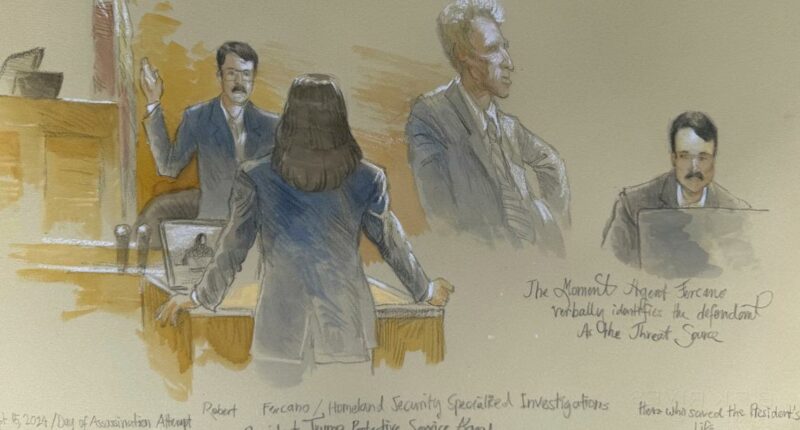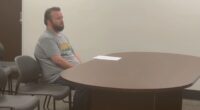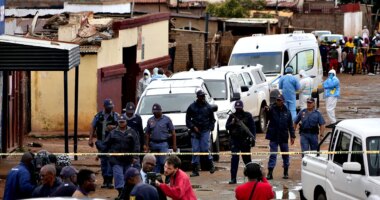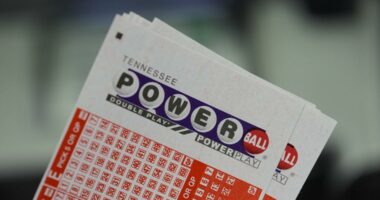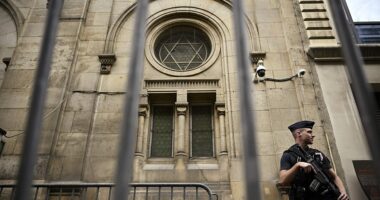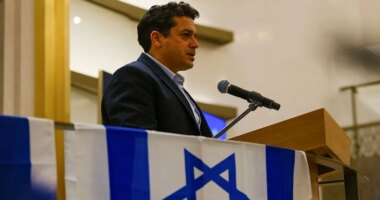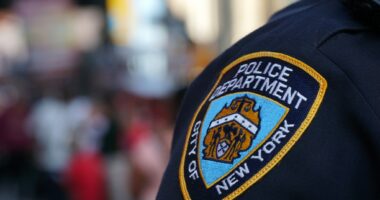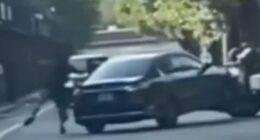Share this @internewscast.com
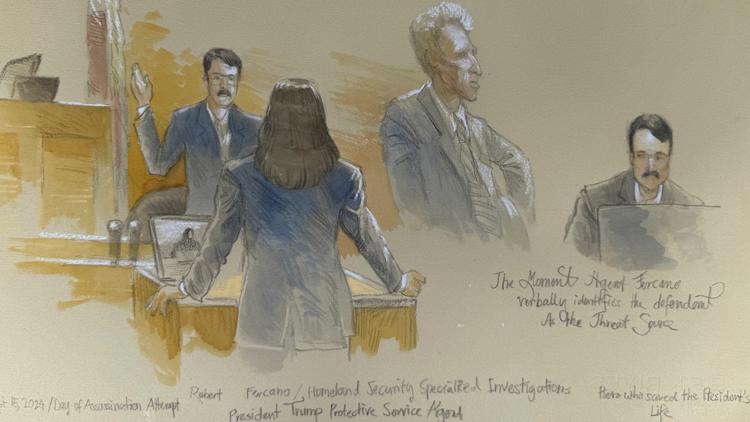
Ryan Routh and prosecutors will each have one hour and 45 minutes Tuesday to make their final cases to jurors before they begin deliberations.
FORT PIERCE, Fla. — A man is defending himself in federal court against accusations that he attempted to assassinate Donald Trump at a Florida golf course last year. He is scheduled to give his closing argument on Tuesday, although a judge has cautioned him that his argument may be ended early if he doesn’t adhere to the court’s guidelines.
Ryan Routh and prosecutors will each have one hour and 45 minutes to make their final cases to jurors before they begin their deliberations.
Prosecutors have claimed that Routh spent a significant amount of time preparing to kill Trump, a Republican, and eventually aimed a rifle through bushes as Trump played a round of golf on September 15, 2024, at his country club in West Palm Beach.
Routh, who is 59, has entered a plea of not guilty to the charges, which include attempting to assassinate a major presidential candidate, assaulting a federal officer, and various firearm-related offenses.
At the close of Monday’s court session, U.S. District Judge Aileen Cannon reminded Routh that his closing arguments must directly relate to the evidence and testimonies presented during the trial. She emphasized that straying from this requirement could result in him losing the opportunity to present his closing argument.
Routh chose not to testify in his own defense, which is his constitutional right, and Judge Cannon advised him that his closing argument should not be used as a substitute for testimony since that would deny the prosecution a chance for cross-examination.
“This can’t be your opportunity to provide pseudo-testimony outside the context of sworn testimony,” Cannon said.
Routh acknowledged this guidance but had previously claimed to understand similar instructions given for his opening statement two weeks prior. During that statement, Cannon interrupted him after less than ten minutes, explaining that he had lost his right to continue because he disregarded her warnings by deviating from the topic to discuss unrelated themes such as Adolf Hitler and conflicts in Ukraine and Gaza.
Routh rested his case Monday morning after questioning just three witnesses — a firearms expert and two character witnesses — for a total of about three hours. In contrast, prosecutors spent seven days questioning 38 witnesses.
Cannon signed off on Routh’s request to represent himself following two hearings in July. The U.S. Supreme Court has held that criminal defendants have a right to represent themselves in court proceedings, as long as they can show a judge they are competent to waive their right to be defended by an attorney. Routh’s former defense attorneys have served as standby counsel since Routh took over his own defense and have been present during trial the past two weeks.
Recounting what happened at the golf course, a Secret Service agent testified earlier in the trial that he spotted Routh before Trump came into view. Routh aimed his rifle at the agent, who opened fire, causing Routh to drop his weapon and flee without firing a shot, the agent said.
Law enforcement obtained help from a witness who testified that he saw a person fleeing the area after hearing gunshots. The witness was then flown in a police helicopter to a nearby interstate where Routh was arrested, and the witness said he confirmed it was the person he had seen.
Just nine weeks earlier, Trump had survived an attempt on his life while campaigning in Butler, Pennsylvania. That gunman had fired eight shots, with one bullet grazing Trump’s ear. The gunman was then fatally shot by a Secret Service counter sniper.
Routh was a North Carolina construction worker who in recent years had moved to Hawaii. A self-styled mercenary leader, Routh spoke out to anyone who would listen about his dangerous, sometimes violent plans to insert himself into conflicts around the world, witnesses have told The Associated Press.
In the early days of Russia’s war in Ukraine, Routh tried to recruit soldiers from Afghanistan, Moldova and Taiwan to fight the Russians. In his native Greensboro, North Carolina, he was arrested in 2002 for eluding a traffic stop and barricading himself from officers with a fully automatic machine gun and a “weapon of mass destruction,” which turned out to be an explosive with a 10-inch (25-centimeter) fuse, police said.
In 2010, police searched a warehouse Routh owned and found more than 100 stolen items, from power tools and building supplies to kayaks and spa tubs. In both felony cases, judges gave Routh either probation or a suspended sentence.
Besides the federal charges, Routh also has pleaded not guilty to state charges of terrorism and attempted murder.
Copyright 2025 Associated Press. All rights reserved. This material may not be published, broadcast, rewritten, or redistributed.
